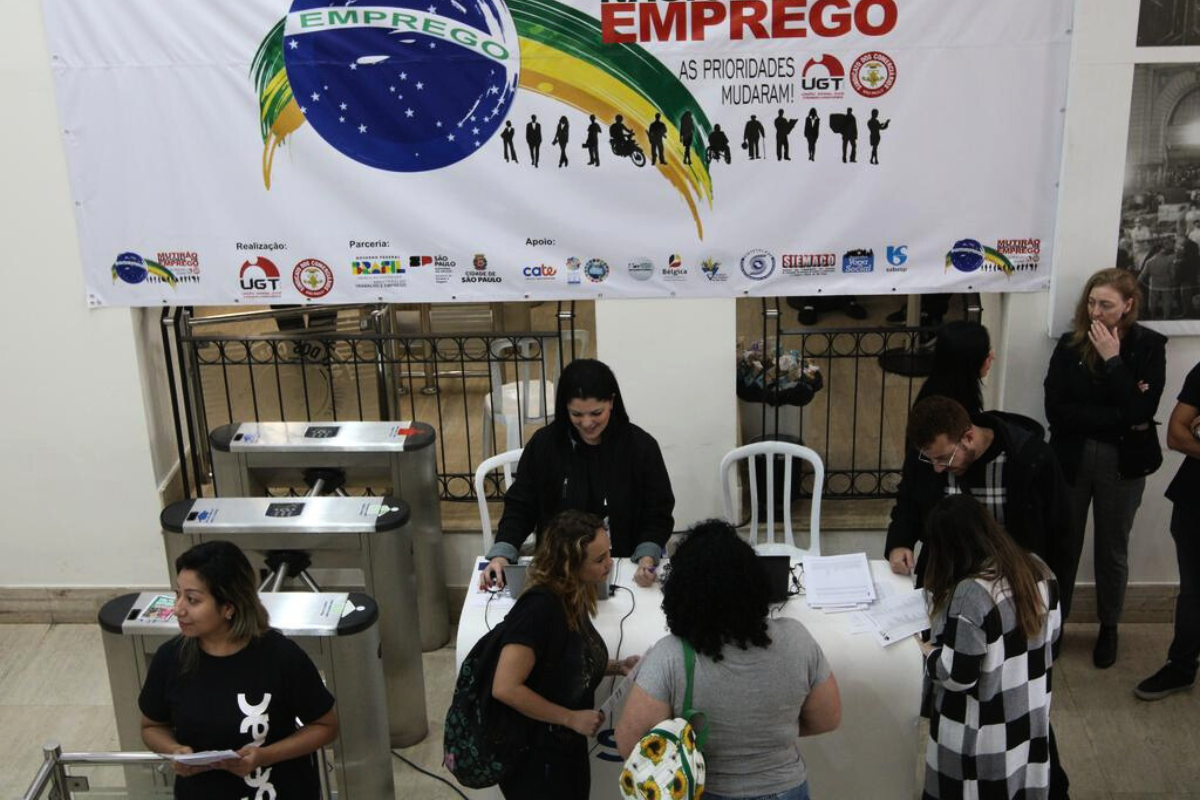While economic indicators show that the Brazilian economy is slowing down, nothing points to the country’s job market cooling down.
On Monday afternoon, the Labor Ministry showed that the country created almost 212,000 new formal jobs in September (more than markets expected). And fresh unemployment data published on Tuesday shows that the joblessness rate went down to 7.7 percent in the rolling quarter through September — the lowest since February 2015.
According to the latest unemployment reading, the number of employed individuals surged to 99.8 million in Q3, more than ever recorded. Of this total, 39 million are in the informal economy (or 39.1 percent of the total workforce).
From the previous quarter, almost one million workers found a job.
Meanwhile, the number of discouraged workers — those who have given up on finding a job — sat at 3.5 million in September, the lowest since 2016.
The unemployed population also ticked down, by 3.8 percent, to 8.3 million people.
Adriana Beringuy, a research coordinator at the Brazilian Institute of Geography and Statistics (IBGE), pointed to a very positive aspect of the data: most of the growth in employment came from workers who secured formal contracts in the private sector rather than getting informal jobs.
This is a noteworthy development, as formal, permanent positions typically offer higher income and labor protection. The increase in such roles could also signify heightened business confidence in the economy, especially considering that formal employment usually incurs greater costs for companies.
IBGE also flagged a rise in worker earnings. Average wages went up by 1.7 percent quarter-on-quarter (and 4.2 percent annually) to BRL 2,982 (approximately USD 593).
“Overall, there was no workforce reduction across all economic sectors; layoffs were essentially non-existent,” states Ms. Beringuy.
This robust performance in the labor market stands in stark contrast to the broader economic landscape, as financial markets have started to revise their growth projections downward for the year.
The Central Bank’s economic activity index, widely regarded as a reliable bellwether of GDP performance, declined by 0.77 percent in August. Concurrently, core retail sales recently dipped by 0.2 percent, and the services sector contracted by 0.9 percent.


 Search
Search






































